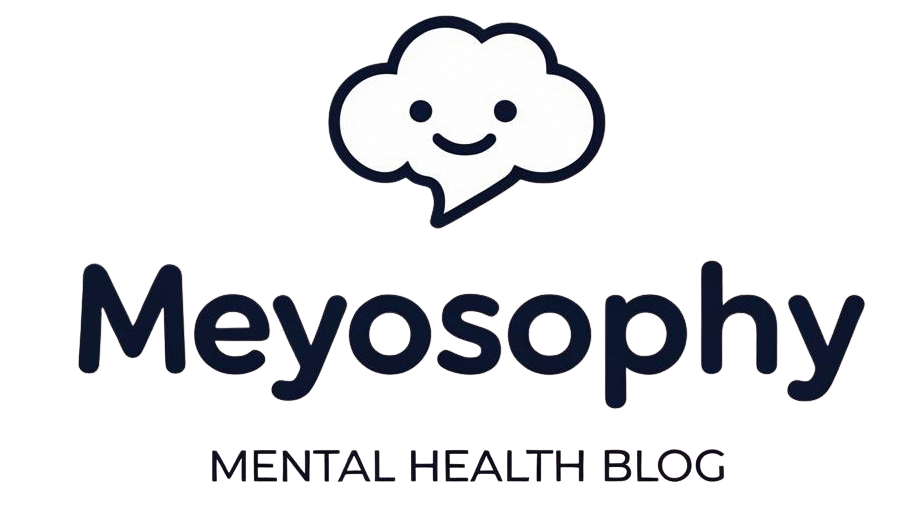We live in a culture that prizes hustle. When things get tough, the default advice is often: “Just keep going.” Push through the fatigue, ignore the stress, grind another hour. While perseverance has its place, relentlessly powering on can backfire: physically, mentally, and emotionally. True self-care isn’t about soldiering on; it’s about listening to your needs and responding with kindness.
Let’s explore why “just keep going” often isn’t self-care, what it costs us, and how you can shift into genuine rest and renewal.
The Myth of the Unstoppable You
On the surface, powering through challenges feels productive. You check tasks off your list, meet deadlines, and show grit. Yet beneath that sense of accomplishment, our bodies and minds are sounding alarms:
- Chronic stress triggers high cortisol levels, impairing sleep, digestion, and immune function¹.
- Mental fatigue from constant focus reduces creativity and decision-making quality².
- Emotional weariness leads to irritability, burnout, and a sense of disconnection³.
If self-care means meeting your deeper needs, pushing nonstop is the exact opposite. It privileges productivity over well-being, short-term gain over long-term health.
What “Just Keep Going” Costs Your Body
When you ignore physical and emotional cues, you pay a price:
- Elevated Stress Hormones
Prolonged stress keeps cortisol and adrenaline elevated⁴. Over time, this dysregulates blood sugar, weakens immunity, and interferes with restful sleep⁵. - Weakened Immunity
Studies show that chronic stress makes you more susceptible to colds and infections⁶. If your body is always in “fight or flight,” it can’t devote energy to repair. - Burnout & Fatigue
Physical exhaustion becomes mental exhaustion. You may push through a few all-nighters, but eventually your motivation, focus, and energy plummet². - Somatic Complaints
Tension headaches, gastrointestinal issues, and muscle pain often accompany unchecked stress⁷. Your body literally aches to be heard.
The Emotional Toll of Relentless Pushing
Ignoring emotional needs can be just as harmful:
- Anxiety and Irritability. Continual pressure makes even small setbacks feel overwhelming⁸.
- Reduced Empathy. Chronic stress narrows your capacity for compassion, toward others and yourself⁹.
- Disconnection. When you never pause to reflect or recharge, you lose touch with your values, passions, and relationships¹⁰.
In short, “just keep going” erodes the very things that make life meaningful.

Real Self-Care Isn’t a Luxury, It’s a Necessity
Self-care gets a bad rap as bubble baths or retail therapy. While relaxation and treats can help, real self-care is about:
- Listening to Your Signals
Notice tension, fatigue, or emotional spikes. These are cues, your mind and body asking for rest or support. - Setting Boundaries
Saying “no” protects your energy. You can’t pour from an empty cup, so guard your time and attention. - Intentional Rest
Schedule breaks, naps, or leisure activities just as you would meetings. Regular downtime prevents the stress build-up that leads to burnout. - Nourishing Connections
Reach out to friends, family, or peers. Social support buffers stress and reminds you you’re not alone¹¹. - Mindful Movement
Gentle exercise: like walking, yoga, or stretching, reduces cortisol and boosts endorphins¹².
Actionable Strategies to Break the Grind
Here are five concrete steps to shift from relentless doing to mindful being:
- Use the 5-Minute Pause
Set a timer on your phone every 90 minutes. When it dings, stop work, take five slow breaths, stretch, or sip water. This interrupts the stress cycle and gives your brain a reset¹³. - Protect Your Mornings and Evenings
Start your day with a brief ritual, journaling, meditation, or a cup of tea, before jumping into tasks. Likewise, wind down with reading, gentle yoga, or a gratitude list. Consistent routines signal to your body when to ramp up energy and when to relax¹⁴. - Practice Micro-Boundaries
If your inbox or social media feed feels like a constant barrage, designate tech-free windows. Even 15 minutes offline can lower stress and improve focus. - Schedule One “Play Hour”
Block out a weekly hour for something you love that isn’t work-related: drawing, dancing, gardening. Play isn’t just for kids; it rekindles creativity and joy¹⁵. - Check In with a Friend
Once a week, reach out to someone you trust. Share a win, vent a frustration, or simply chat. Social connection grounds you and reminds you that you matter beyond your tasks.
Shifting Your Mindset
Moving from “just keep going” to true self-care takes practice. Guilt or the fear of falling behind can creep in. Try these mindset shifts:
- “Rest is productive.”: Rest restores your ability to be creative, focused, and resilient.
- “I am not my to-do list.”: You have worth beyond accomplishments.
- “Small breaks add up.”: Five minutes here and there compound into significant relief.
Conclusion: Reclaim Your Well-Being
Hustle culture tells us: “Persist at all costs.” But real strength lies in knowing when to pause, when to ask for help, and when to choose self-care over relentless drive.
You deserve more than burnout and exhaustion. By listening to your body’s signals, setting clear boundaries, and weaving intentional rest into your routine, you reclaim your energy, mood, and joy.
Next time you feel the urge to “just keep going,” remember: true self-care is the bravest kind of resistance against a world that never stops pushing.
Disclaimer: I’m not a mental health professional, everything here is shared from research and personal experience. If you’re feeling overwhelmed or need support, please consider talking to a qualified professional. You’re not alone. If you’re in the U.S., you can call or text 988 anytime. For help in other countries, visit https://findahelpline.com.
🧠 Sources
- McEwen, B. S. (2007). Physiology and neurobiology of stress and adaptation: Central role of the brain. Physiological Reviews.
- Galli, F., & Gonzalez-Lima, F. (2014). Brain energetics and dietary interventions. Nutrition.
- World Health Organization. (2019). Burn-out an “occupational phenomenon”: International Classification of Diseases.
- Sapolsky, R. M. (2004). Why Zebras Don’t Get Ulcers. Henry Holt & Co.
- Glaser, R., & Kiecolt-Glaser, J. K. (2005). Stress-induced immune dysfunction: Implications for health. Nature Reviews Immunology.
- Cohen, S., et al. (1991). Psychological stress and susceptibility to the common cold. New England Journal of Medicine.
- Thayer, R. E., & Sternberg, E. M. (2014). Neuroimmunoendocrine mechanisms in stress and disease. Handbook of Psychoneuroimmunology.
- American Psychological Association. (2018). Stress in America: The State of Our Nation.
- Cacioppo, J. T., & Cacioppo, S. (2018). The growing problem of loneliness. The Lancet.
- Deci, E. L., & Ryan, R. M. (2000). The “what” and “why” of goal pursuits: Human needs and the self-determination of behavior. Psychological Inquiry.
- Holt-Lunstad, J., Smith, T. B., & Layton, J. B. (2010). Social relationships and mortality risk: A meta-analytic review. PLOS Medicine.
- Dishman, R. K., et al. (2006). Neurobiology of exercise. Obesity.
- Zeidan, F., et al. (2010). Mindfulness meditation improves cognition: Evidence of brief mental training. Consciousness and Cognition.
- National Sleep Foundation. (2020). Sleep hygiene tips.
- Brown, S. (2009). Play: How it shapes the brain, opens the imagination, and invigorates the soul. Avery.

